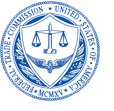Debts and Deceased Relatives
After a relative dies, the last thing grieving family members want are calls from debt collectors asking them to pay a loved one's debts. As a rule, those debts are paid from the deceased person's estate.
According to the Federal Trade Commission (FTC), the nation's consumer protection agency, family members typically are not obligated to pay the debts of a deceased relative from their own assets. What's more, family members – and all consumers – are protected by the federal Fair Debt Collection Practices Act (FDCPA), which prohibits debt collectors from using abusive, unfair, or deceptive practices to try to collect a debt.
Under the FDCPA, a debt collector is someone who regularly collects debts owed to others. This includes collection agencies, lawyers who collect debts on a regular basis, and companies that buy delinquent debts and then try to collect them.
Does a debt go away when the debtor dies?
No. The estate of the deceased person owes the debt. If there isn't enough money in the estate to cover the debt, it typically goes unpaid. But there are exceptions to this rule. You may be responsible for the debt if you:
- co-signed the obligation;
- live in a community property state, such as California;
- are the deceased person's spouse and state law requires you to pay a particular type of debt, like some health care expenses; or
- were legally responsible for resolving the estate and didn't comply with certain state probate laws.
If you have questions about whether you are legally obligated to pay a deceased person's debts from your own assets, talk to a lawyer.
Who has the authority to pay the deceased person's debt out of his or her assets?
The person named in a will who is responsible for settling a deceased person's affairs is called the executor. If there is no will, the court may appoint an administrator, personal representative, or universal successor, and give them the authority to settle the affairs. In some states, others (or other people) may have that authority, even if they haven't been formally appointed by the court.
Whom may a debt collector talk to about a deceased person's debt?
Under the FDCPA, collectors can contact and discuss the deceased person's debts with that person's spouse, parent(s) (if the deceased was a minor child), guardian, executor, or administrator. Also, the FTC permits collectors to contact any other person authorized to pay debts with assets from the deceased person's estate. Debt collectors may not discuss the debts of deceased persons with anyone else.
If a debt collector contacts a deceased person's relative, what can they talk about?
Collectors are allowed to contact third parties (such as a relative) to get the name, address, and telephone number of the deceased person's spouse, executor, administrator, or other person authorized to pay the deceased's debts. Collectors usually are permitted to contact such third parties only once to get this information. The main exception is if a collector reasonably believes that the information provided initially was inaccurate or incomplete, and that the third party now has more accurate or complete information. But, collectors cannot say anything about the debt to the third party.
Even if I am authorized to pay a deceased person's debt, can I stop a debt collector from contacting me about the debt?
Yes. To exercise this right, you must send a letter to the collector stating that you do not want the collector to contact you again. A telephone call is not enough. Make a copy of your letter for your files, send the original by certified mail, and pay for a "return receipt" so you can document what the collector received and when. Once the collector gets your letter, he cannot contact you again except to confirm that there will be no further contact or that he or the creditor plans to take a specific action, like filing a lawsuit to collect the debt. Keep in mind that even if you stop collectors from communicating with you, you are still responsible for the debt.
For Complaints and More Information
Report any problems you have with a debt collector to your state Attorney General's office at naag.org and the Federal Trade Commission at ftccomplaintassistant.gov. Many states have their own debt collection laws that are different from the federal FDCPA. Your Attorney General's office can help you determine your rights under your state's law.
This article was previously available as Paying the Debts of a Deceased Relative: Who Is Responsible?

